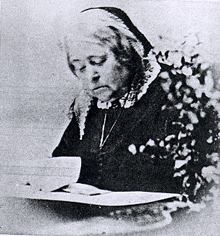Hawaiian Punch, Junk Food, and a (Holiday) Food Plan
The holidays: a time when Michael Pollan's simple advice "Eat food. Not too much. Mostly plants " seems to go out the window. Beets, cabbage, and other root vegetables are staple foods for countless peasants around the world. Yet on a global scale, a treat or something sweet is usually presented during the holidays. Special cookies, cakes, candy, and other dishes are often made.
Until fairly recently, these special treats were not available year round. Until fairly recently, sugar was not ubiquitous. And until fairly recently, processed foods, artificial food dyes and colorings, artificial and refined sweeteners were not so widespread either. Today, it's the wild west with foods.
For many parents of 2e children with allergies, food sensitivities, or on restrictive diets, the holidays are somewhat of a nightmare. For many, however, the food issues are year-round. During the holidays, they just become magnified about 100 times, it seems. The sights and smells can be hard to resist. Food quickly becomes associated with fun but isn't when your child can't eat certain food or when you've become a member of the food police or healthy food advocate.
Every holiday event seems to have tons of junk food, sweets, and other unhealthy items (cakes, cupcakes, cookies, etc.). What can a 2e parent do?
1. Acknowledgement. 'Food' features strongly in holiday celebrations. Though we may disagree on what you or I may constitute as 'food', it's pretty much a given that many people feel compelled to bring a 'food' item to a holiday event or gathering.
2. Document. One British family did an experiment. They created a food diary and logged their kids' daily sugar intake for a week. The parents were horrified. It turns out the kids were eating 70 teaspoons of sugar a day! Worse, much of the sugar intake was consumed at public (state) school. And such sugar was not presented as one-off treats either.
2. Document. One British family did an experiment. They created a food diary and logged their kids' daily sugar intake for a week. The parents were horrified. It turns out the kids were eating 70 teaspoons of sugar a day! Worse, much of the sugar intake was consumed at public (state) school. And such sugar was not presented as one-off treats either.
3. Don't forget about drinks. Visit Whole Foods or many other supermarkets during the holidays. Eggnog and other holiday drinks are often freely available. Many schools, libraries, and other organizations serve Hawaiian Punch or other 'kid-friendly' drinks during the holidays too. Yet these drinks are usually contain artificial food dyes or colorings as well as sugar. Robert Lustig, NPR, and other organizations have written about the hidden sugars and substances in juices.
4. Plan ahead.
Option A. Don't attend or try to avoid holiday celebrations. Elimination works, but isn't always doable or realistic.
Option B. Eat before any holiday celebration. That way the temptation to eat is gone or reduced. This is sometimes works. For many kids, they see others eating colorful creations and they are desperate to join them regardless.
Option C. Bring an alternative holiday celebration. Your child wants to attend a holiday celebration that will have brownies, for instance, but your child can't or isn't supposed to eat brownies. Your child, however, can (discretely) bring homemade brownies. You found a recipe for chocolate avocado cookies which look like the real McCoy and your child can and, more importantly, does eat them.

Option D. Let things go and let your child eat whatever at a holiday celebration. This is like the hope and pray that no harm will come. Again, this may work or might not work - at all. IF your child has a severe allergy, then the harsh reality is that can't always control what others bring and your ability to protect your child from any harm comes first, period.
Option E. Something I haven't covered? Maybe an exit strategy when things go south at a holiday event?
5. Allow your child to have a role and devise a solution. Let's say you've got a child on the GAPS (gut and psychology syndrome) diet. You can could be a food enforcer. Or you could ask the child to help play a larger role in their food decisions and choices. Let your son look at Pinterest for recipes. Let them pick out recipe. Let them find something to eat that they will like and eat. Let them be part of the solution, if possible.
6. Talk about the social and emotion feelings. Everyone likes to feel included, but 'food' can be a thorny issue today and for many of us. Some kids have a physical reaction to food and that's no fun. Some kids have a behavioral/neurological reaction to food and that's no fun either. Many people don't genuinely understand why a child can't just have a little bit of candy or a little bit of Hawaiian Punch to feel part of a group. Not many parents want to be a pariah over food either.
Not surprisingly, parents and kids often feel the peer pressure with food. It doesn't make you feel good when others can supposedly guzzle Sunny Delight, for instance, or pop gingerbread cookies into their mouths without any ramifications, it seems. Yes, it's not fair. Yes, it seems out of your control. Yes, it seems like you have faulty or defective genes when others do not. And yes, it's not an easy path.
I 'get' it. My husband has Crohn's and yes, recent research has pointed the figure at the Neanderthal gene for causing it. Moreover three years ago, our 2e son was put on a restrictive diet by a neurofeedback provider - a sort of GAPS/Wahls/Paleo/Feinstein (no grains, dairy, corn, soy, processed food, refined sugars and limits on fruit, yada yada). Initially, it was a nightmare and daily juggling act. Yes, food can be a daily grind. It's not like trying to skip rope which you can avoid on a daily level.
With peer pressure and food, brainstorm the alternatives and options available. Sometimes you can easily substitute. Other times creativity is necessary.
7. Positive reinforcement for healthy food choices and decisions. Praise the child for taking the time and effort to select a recipe. Praise the child for taking an active role and making a decision.
8. Become a healthy food role model. Practice what you preach. Read the labels and find out what the ingredients are. When a neurofeedback provider put my son on the restrictive diet, I went through my refrigerator and cupboards and either donated food to charity or chucked it out (note: we didn't have a compost bin then!). I set aside most of my cookbooks. I googled and googled and googled for recipes. Now I find recipes on Pinterest instead. I found healthy substitutions. In many cases, however, I had to flip our meals and ways of thinking and eating. But my husband and I both made the conscious decision to become food role models for our 2e son.
9. Become a healthy food advocate. When the public library served Hawaiian punch (and junk food) at a children's library event, my 2e son spoke to the children's librarian and suggested that perhaps they could offer something healthier. Raisins are often served now; previously they had served oreo cookies.
10. Enjoy the holidays - or at least try to enjoy the holidays.
This is part of the Gifted Homeschooling Forum's blog hop Parenting OEs, 2Es, and Everything in Between http://giftedhomeschoolers.org/blog-hops/parenting-oes-2es/. For more of GHF's blog hops, see http://giftedhomeschoolers.org/blogs/
 http://giftedhomeschoolers.org/
http://giftedhomeschoolers.org/



















